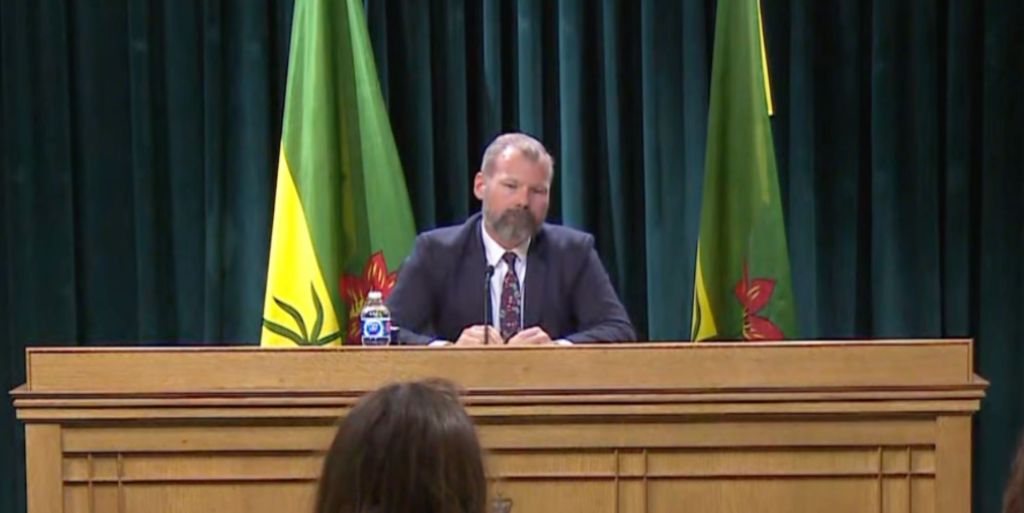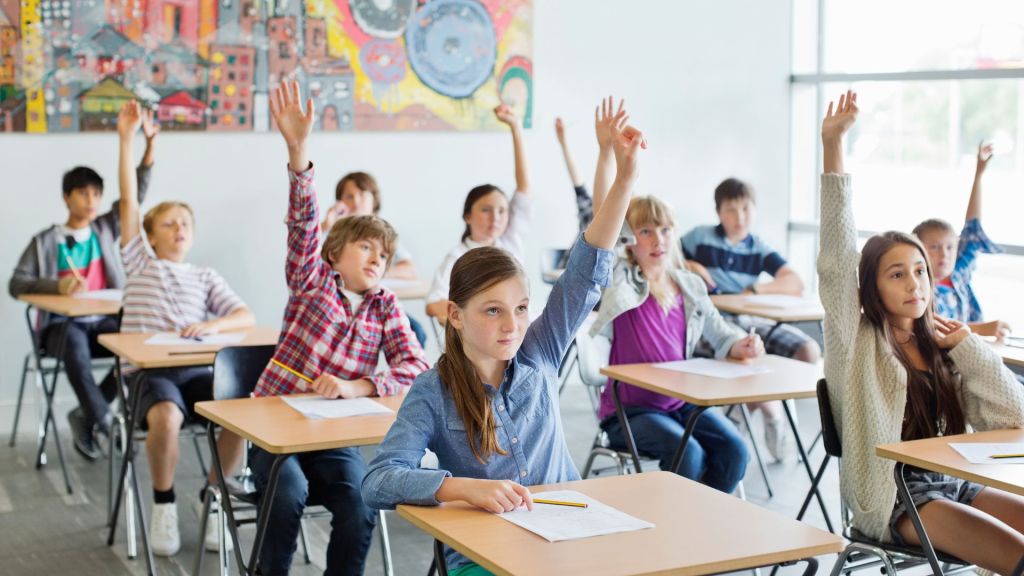Canadian parents rally against new anti-LGBTQ+ education policy

New anti-LGBTQ+ education policies in Saskatchewan, Canada, have sparked protests. (Envato)
Hundreds of protestors gathered in Saskatoon, Canada over the weekend to oppose new policies around sex and gender education in the classroom.
Saskatchewan state education minister Dustin Duncan announced on Tuesday (22 August) that troubling changes to LGBTQ+ policies would be made to the Canadian province’s schools.
These changes include requiring students under the age of 16 to get permission from a parent or guardian before changing their pronouns or preferred name.
Additionally, Saskatchewan parents will now be forewarned about the sexual health curriculum being offered to their children at school, and given an opportunity to opt their child out of ‘all or part of’ those lessons.
Children who are permitted by their parents to access sexual health education will only be taught by their own teachers, while material from third-party organisations, like Planned Parenthood, is put under review by the education ministry.
Within hours of the policy change announcement, public outrage set in, with civil rights organisations, health professionals, opposition politicians, teachers, and now parents, lashing out at the decision.
Naturally, there is a serious concern that these new policies could be particularly harmful to transgender and non-binary students.
There are also concerns that students in general will be put at risk by failing to receive a well-rounded education on sexual health.
On Sunday (27 August), approximately 400 parents, children, and educators rallied together to protest the new education policies.

“Stop this,” protest organiser Fran Forsberg said. “It’s not in the interest of saving children or making children safe.
“You are putting youth and children in harm’s way.”
Forsberg, who is a parent to two transgender children, told CJWW Radio that school should be a safe space for children, who might not have their gender identity supported at home.
Speaking to CBC News, another protestor, therapist Teresa Mead, said that although she is an LGBTQ+ ally, her child waited nine months to come out to her as transgender, and opted to come out to a teacher first.
“They were still worried that I would kick them out of the home,” she said.
Jessica Fraser, another parent of a transgender student, added: “Not all parents are safe to involve.
“Our kids should be able to be themselves at school. School should be a safe place where you can trust the people around you and be yourself – and sometimes home just isn’t that.”
Wider opposition to Saskatchewan’s new education policies
Carla Beck, Saskatchewan’s opposition leader, claimed that Duncan’s new policies were rooted in ‘divisive politics’ and transphobia, and marked a ‘new low’ for the provincial government.
“What we saw from this government was calculated policy to solve their own political problems and a policy that we fear will put already vulnerable kids at greater risk,” said Beck, per CBC.
“We don’t support outing kids.”
Meanwhile, Lisa Broda, the Saskatchewan Advocate for Children and Youth, said in a statement that she was ‘deeply troubled’ by the impact that Duncan’s new policy will have ‘on the rights of children in Saskatchewan.’
Speaking with CBC journalist Stefani Langenegger, Duncan insisted that the policy changes were made in the hopes of increasing parental involvement.

When asked what would happen if a child did not feel safe letting their parents know about their name and pronoun change, the education minister gave a disappointing response.
“There will be a provision to say in that case where a child expresses that there may be a danger in their parents knowing this information, that we need to wrap support around that child and get them to a place where, if this is what they feel and this is what they desire in terms of how they want to proceed, we need to get them to a place where they are comfortable in telling their parents,” he said.
Duncan also suggested that there was no way of proving whether children were safer before this new policy.
“I don’t think we actually know that,” he said.
“What we want to be able to be assured of as much as possible, knowing that every situation is going to be different, is that parents are involved in what – for many kids – this will be, to that point in their life, the biggest decision that they are trying to make in their lives.”
When asked what experts were consulted to put this policy together, Duncan has not yet given a direct answer.
Meanwhile, organisations that have opposed Duncan’s policy include the Saskatchewan Teacher’s Federation, which warned it was sacrificing student safety and education to meet political needs, the Saskatchewan Federation of Labour, which stated that ‘outing children as part of a political gamble is violent and despicable, and the Canadian Civil Liberties Association (CCLA) who described the policy as ‘repulsive.’

